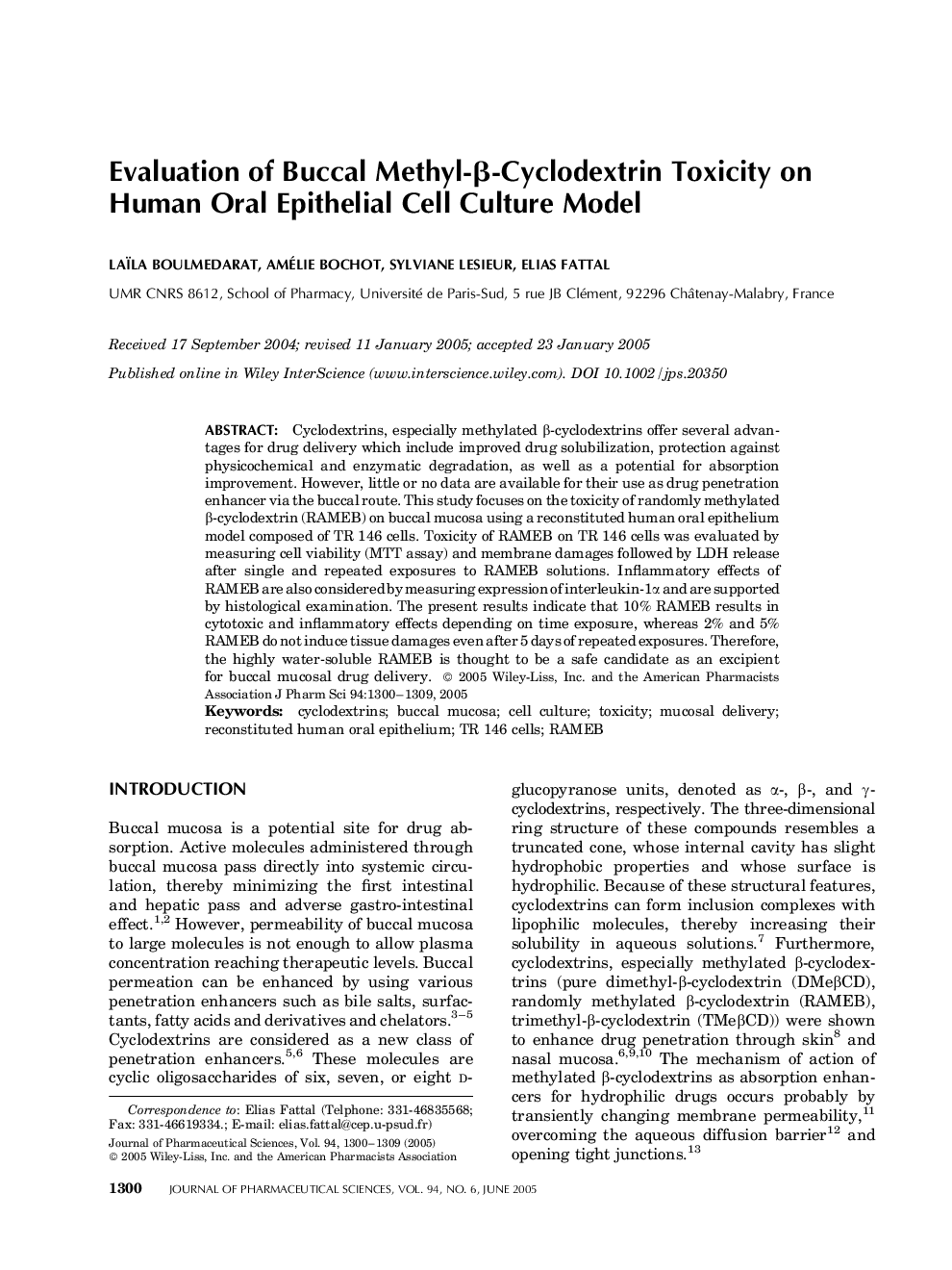| Article ID | Journal | Published Year | Pages | File Type |
|---|---|---|---|---|
| 8994662 | Journal of Pharmaceutical Sciences | 2005 | 10 Pages |
Abstract
Cyclodextrins, especially methylated β-cyclodextrins offer several advantages for drug delivery which include improved drug solubilization, protection against physicochemical and enzymatic degradation, as well as a potential for absorption improvement. However, little or no data are available for their use as drug penetration enhancer via the buccal route. This study focuses on the toxicity of randomly methylated β-cyclodextrin (RAMEB) on buccal mucosa using a reconstituted human oral epithelium model composed of TR 146 cells. Toxicity of RAMEB on TR 146 cells was evaluated by measuring cell viability (MTT assay) and membrane damages followed by LDH release after single and repeated exposures to RAMEB solutions. Inflammatory effects of RAMEB are also considered by measuring expression of interleukin-1α and are supported by histological examination. The present results indicate that 10% RAMEB results in cytotoxic and inflammatory effects depending on time exposure, whereas 2% and 5% RAMEB do not induce tissue damages even after 5 days of repeated exposures. Therefore, the highly water-soluble RAMEB is thought to be a safe candidate as an excipient for buccal mucosal drug delivery. © 2005 Wiley-Liss, Inc. and the American Pharmacists Association
Related Topics
Health Sciences
Pharmacology, Toxicology and Pharmaceutical Science
Drug Discovery
Authors
Laïla Boulmedarat, Amélie Bochot, Sylviane Lesieur, Elias Fattal,
